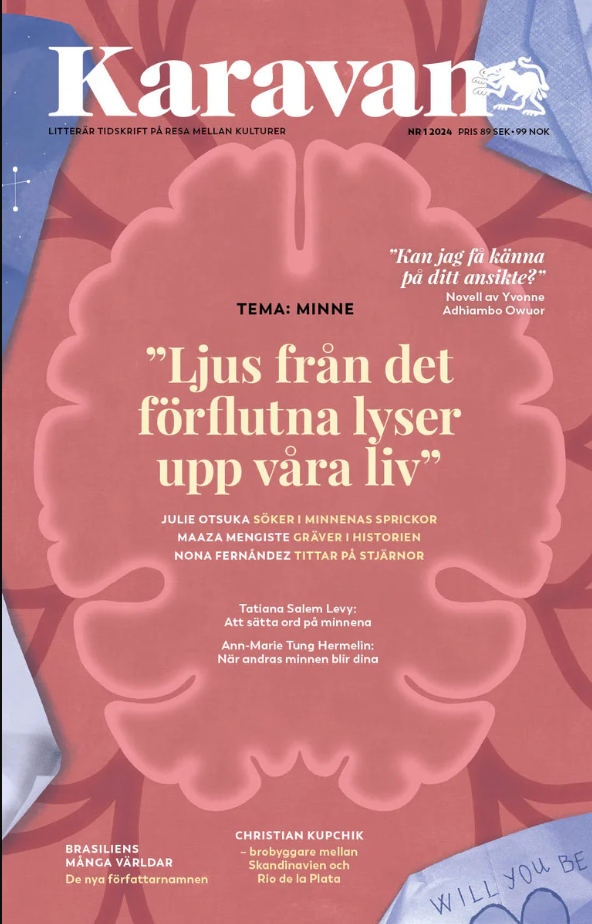The theme for 2024’s first issue of Karavan was memory, and included a fair number of biographical essays from Julie Otsuka, Maaza Mengiste, Ann-Marie Tung Hermelin, and Nona Fernández. Otsuka’s The Swimmers and Mengiste’s The Shadow King went on my TBR as a result.
This issue also featured rising stars within Brazilian literature. In addition to Jeferson Tonório, who was the subject of a feature length précis by Balsam Karam in the previous issue, Isi de Paula highlighted several other names: Geovani Martins, Itamar Vicira Junior, Luciany Aparecida, Stênio Gardel (The Words that Remain), Micheliny Verunschk, Carla Madeira, Aline Bei, and Mariana Salomão Carrara. de Paula also sat down for an interview with Tatiana Salem Levy (The House in Smyrna).
“Kino Karavan,” the recurring movie column, highlighted the animated film adaptation of Sultana’s Dream, El sueño de la sultana.
The translator’s diary column focused on Meta Ottosson’s work on Yvonne Adhiambo Owuor‘s Dust. I always find this segment to be an interesting peek into the lives of others, since literary translation is such a different beast from what I do. Ottosson chronicles her attempts to find the right words for things like buses, pole dance terminology, and Kenyan state officials and legislation; meanwhile, I’ve never had to cold email Nordiska Afrikainstitutet to answer a terminology question for me. The diary was followed by Ottosson’s translation of Owuor’s story “These Fragments.”
And then the grand finale, the reviews. The author interviews are always interesting, but the downside is that authors can be a lot more interesting than their books. Reviews, on the other hand, are always about the experience of reading a particular personality rather than conveying the personality, making them better indicators of what I might like or not. From this issue I took note of:
- Rien ne t’appartient, Nathacha Appanah
- Hardly War, Don Mee Choi
- The Naked Eye, Yoko Tawada
The pile grows higher faster than I can read through it!

